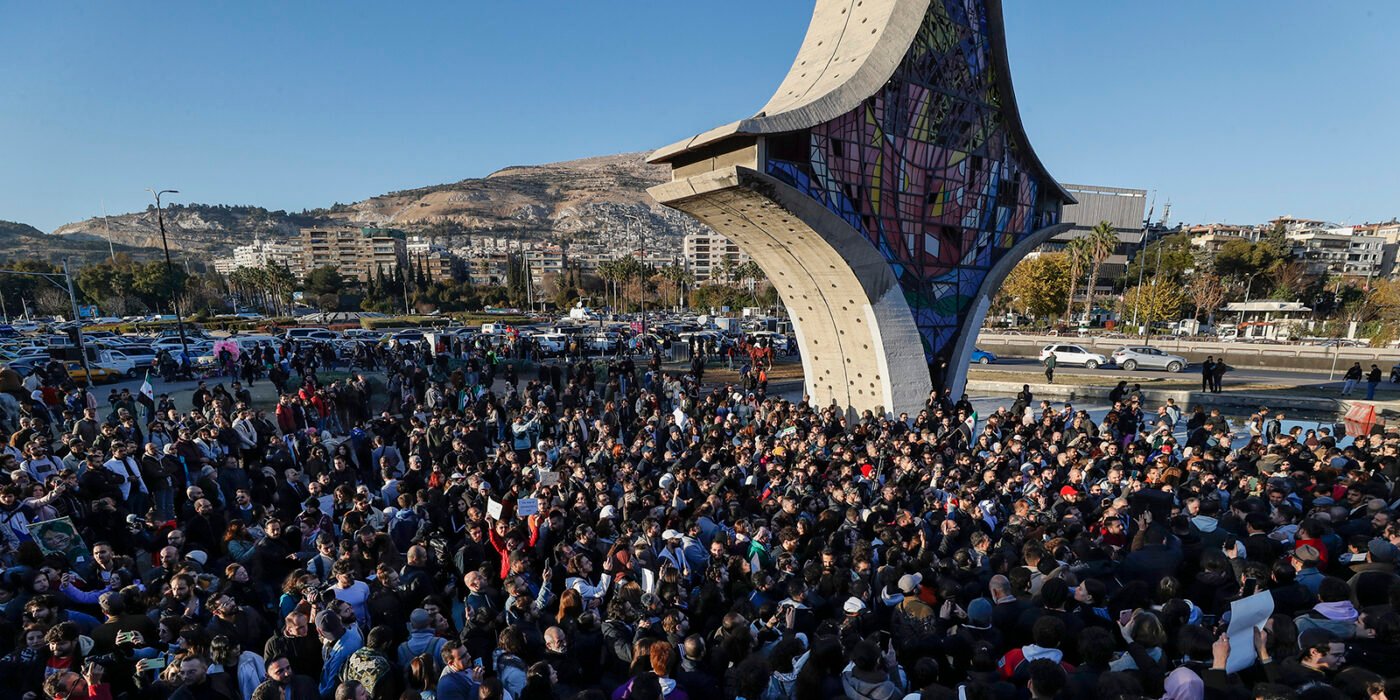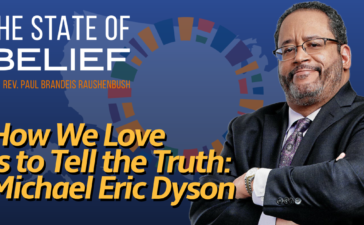(RNS) — In Christianity’s early centuries, Syria became one of the faith’s main intellectual centers, producing some of its most important leaders and thinkers. At the beginning of the country’s civil war in 2011, nearly 1,400 years after the conquest of Byzantine (Christian) Syria in 638 C.E. by the Rashidun Caliphate, its population included roughly 3 million Christians — about 10% of the Muslim-majority country.
But after more than a decade of fighting, millions have fled and fewer than 300,000 Christians remain. While many who left were, like their Muslim neighbors, simply fleeing the violence, the years of conflict have come with added anxiety for Syria’s Christians, as they lived in fear that an Islamist regime would come to power and end millennia of religious pluralism in the country.
Bashar Assad’s regime, like Saddam Hussein’s Baathist regime in neighboring Iraq, had largely afforded Syria’s Christians the opportunity to participate in society without threat of religious persecution. While there is little doubt of the brutality of Assad’s rule, both Bashar Assad and his father served as a protector of the nation’s minorities, including its ancient Christian community. Many of Syria’s Christians feared the day Bashar Assad was no longer in power.
That day came last week, when the Syrian autocrat fled to Russia as the Islamist group Hayat Tahrir al-Sham, which once had ties to al-Qaida, advanced on the country’s capital. Thus far, Hayat Tahrir al-Sham has offered assurances to the country’s minorities, which Syria’s remaining Christians seem to have tentatively accepted; churches last Sunday were filled with worshippers. But tensions remain high, and it will likely be a long time before we truly know what the future holds for Syria’s Christians and other religious and ethnic minorities.
What is certain, however, is that whatever happens in Syria will have as much to do with actors outside the country as within it.
The largest Christian sect in the country is Eastern Orthodox Christians under the authority of the ancient Greek Orthodox patriarch of Antioch. These Antiochian Orthodox Christians have a small, yet significant, diaspora community in the United States who operate as powerful advocates for their brothers and sisters back home.
This is complicated, however, by a strange accident of recent American religious history. For many diaspora communities, churches serve as the chief vehicle for community organizing and advocacy, but since the late 1970s, the Antiochian Orthodox Christian Archdiocese of North America has seen an influx of politically conservative converts. As a result, while the AOA’s leadership remains decidedly Arab, the rank-and-file clergy and laity are no longer majority Arab.
This situation makes it difficult for the AOA to muster the critical mass needed to leverage significant political pressure. A small denomination to begin with, it is now filled with American converts who not only lack historical and familial ties to Syria but who are increasingly isolationist according to the dictates of America First conservatism. President-elect Donald Trump has already announced that Syria is “not our fight” and has shown little appetite for meddling in the affairs of the volatile Middle East.
American converts in the AOA are not Syrian Christians’ only unreliable allies. Vladimir Putin’s Russia has long used Syria’s Christian community and their safety as one of its justifications for the support of the Assad regime. In the past five years, as the Orthodox world has been locked in a battle between the patriarchate of Moscow and the patriarchate of Constantinople, the Antioch patriarchate has routinely sided with Moscow, refusing to acknowledge the independent Orthodox Church of Ukraine.
With Assad now out of power, this calculus has changed. While the Antioch patriarchate could simply switch sides, the conflict between Constantinople and Moscow has taken on cultural significance, with Constantinople considered the broadly progressive side and Moscow the traditionalist. Thus, moving the patriarchate of Antioch’s loyalty from Moscow to Constantinople runs the risk of alienating conservative Christians in the West, including its political converts and American evangelical Christians, who are usually keen to capitalize on the persecution of Christians abroad.
In short, there are no easy answers or certain allies for Syria’s Christians, who now face an uncertain future caught between shifting alliances, both in the unstable sphere of global politics and the petty preferences of the West’s culture wars. Their survival, like that of other Middle Eastern minorities, will depend on the complex interplay of domestic resilience, external advocacy and — one cannot help but think — the will of God.
(Katherine Kelaidis, a research associate at the Institute of Orthodox Christian Studies in Cambridge, England, is the author of “Holy Russia? Holy War?” and the forthcoming “The Fourth Reformation.” The views expressed in this commentary do not necessarily reflect those of RNS.)






